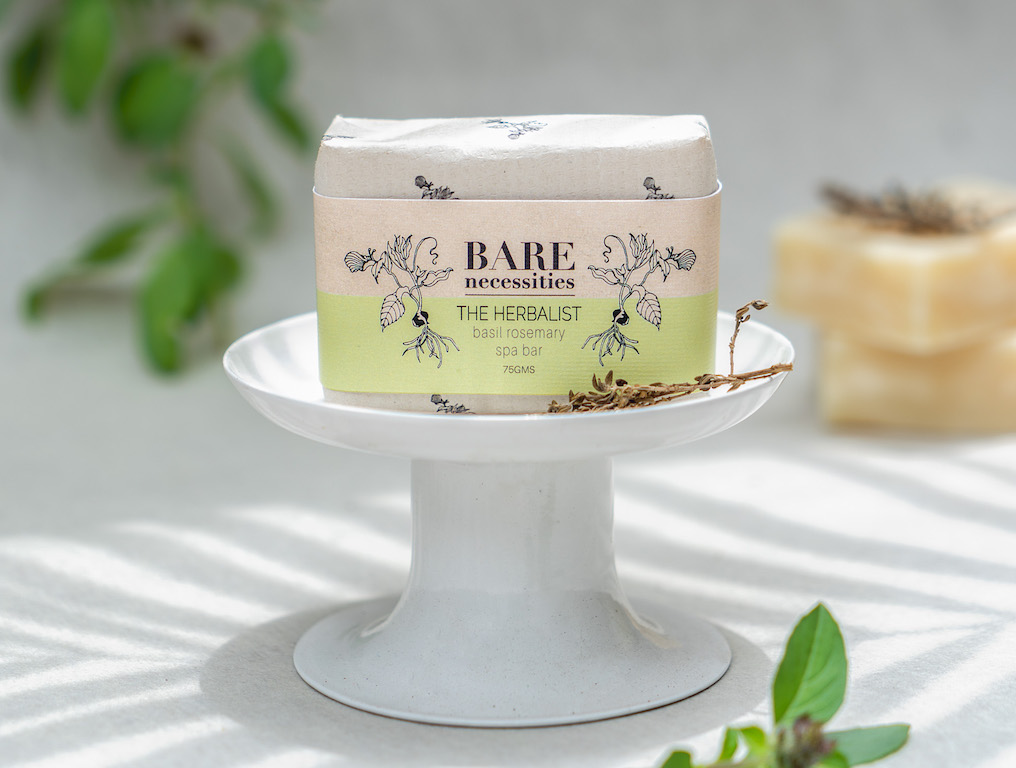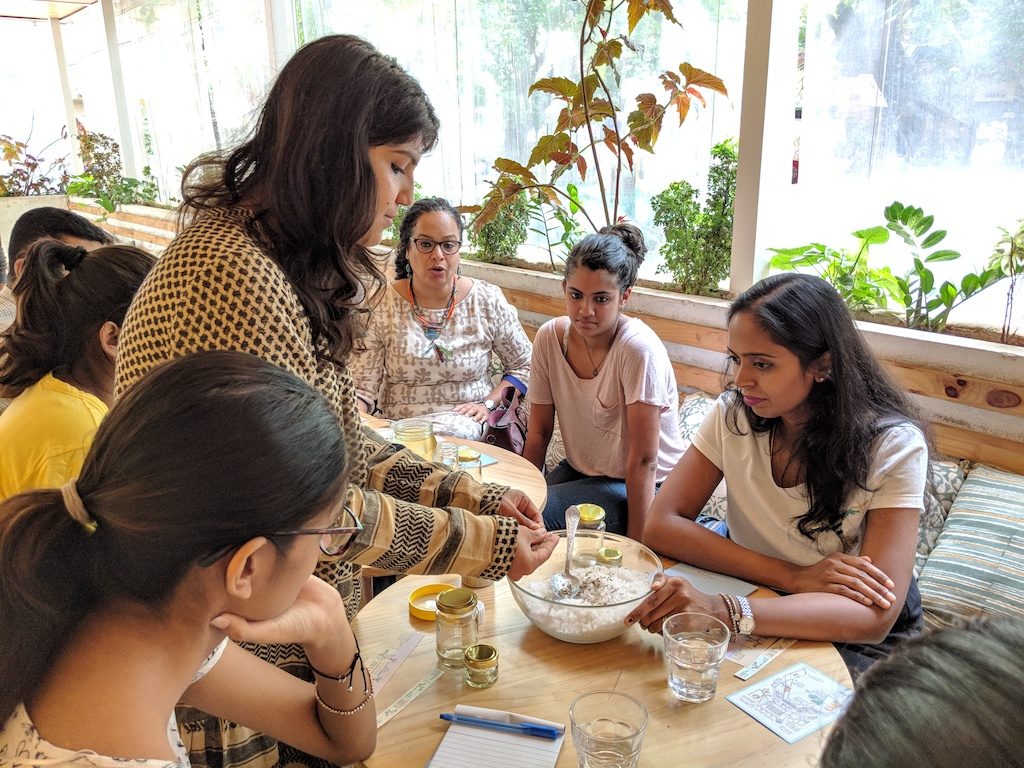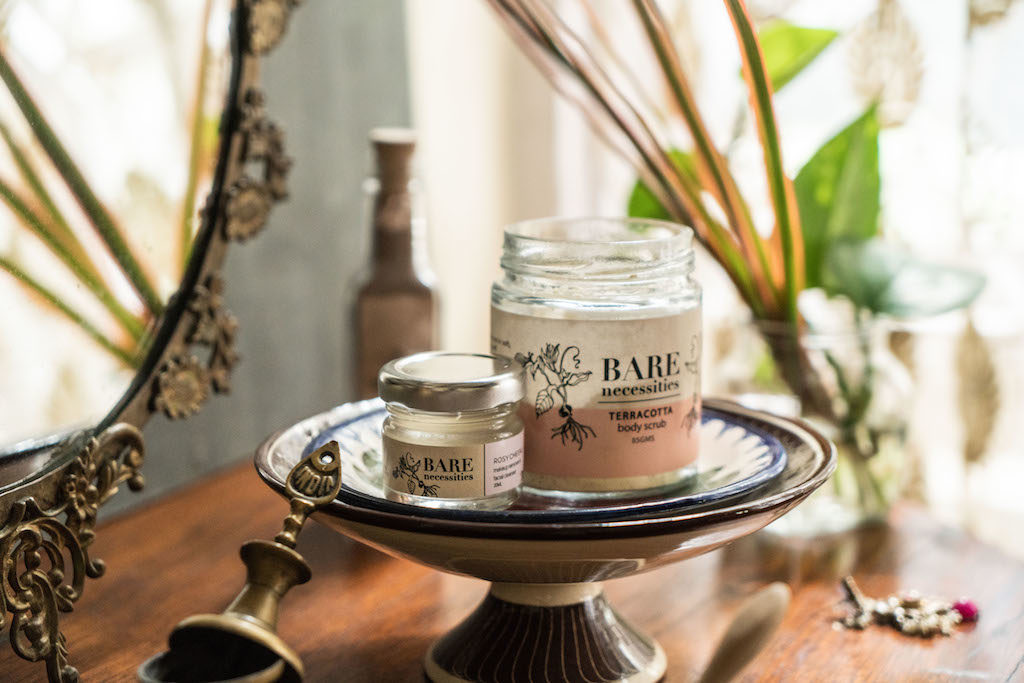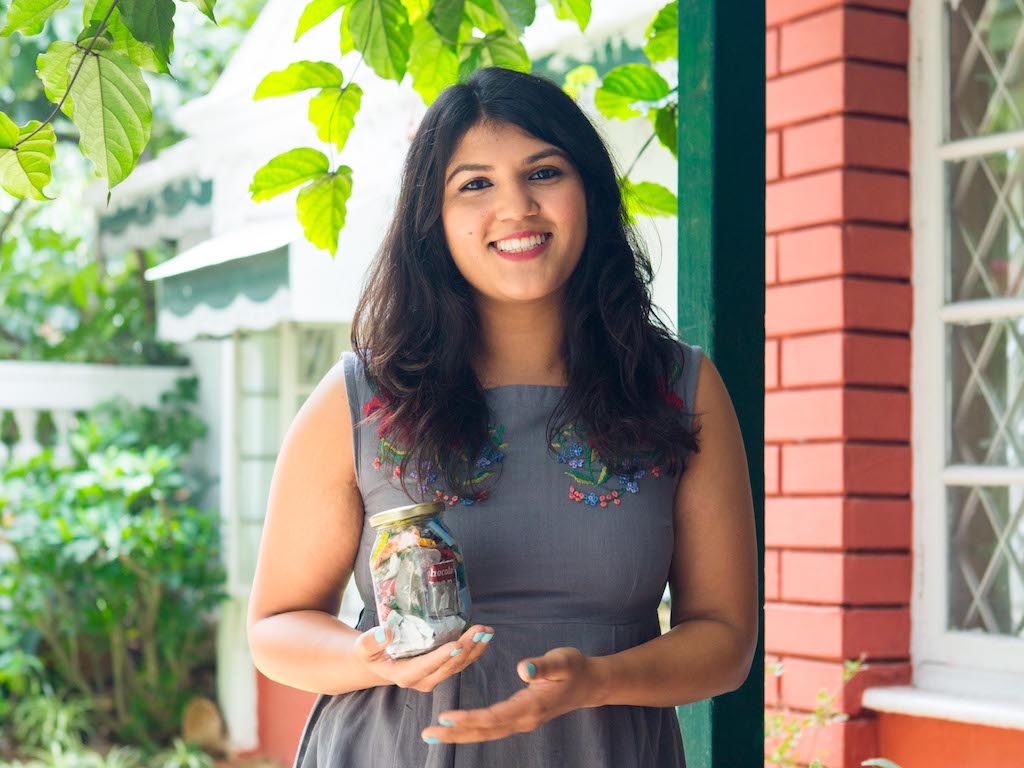7 Mins Read
Passionate eco activist Sahar Mansoor is a zero waste pioneer in her native India. The Bengaluru-based entrepreneur frequently makes headlines everywhere from MTV to Live Mint and regularly is awarded accolades such as Google India’s Inspiring Indian of the Year & Elle Magazine’s Top India Trailblazer. Through Bare Necessities, Mansoor advocates for a low-waste, single use plastic free lifestyle with her retail and educational platform which combines an offering of ethically made, plastic-free home and care products with a series of workshops, articles and resources on how to lessen one’s waste footprint.
When she is not gracing TEDx stages or demoing how to make body scrub, you can find Mansoor holding court at events around India, urging her fellow countrywomen and men to reconsider their waste. We caught up with her to find out more about her Bare Necessities journey, India’s trash problem, the Indian and why there is an urgent need for disruptive innovation
Can you tell us more about your company Bare Necessities?
Bare Necessities is a B2B and B2C zero waste social enterprise. Bare Necessities is a one stop shop solution provider for zero-waste products and services. Products include a range of zero-waste personal, home care and lifestyle products (such a compostable bamboo toothbrushes and stainless steel straws). Our raw materials are ethically sourced. All of our packaging is recyclable or biodegradable, which means nothing ends up in a landfill. Using a people-centered and earth-centered approach, BN addresses serious flaws in manufacturing, distribution, and consumption, by innovating and providing sustainable solutions to waste, and proposing problems that more companies need to address if they want to be innovative and socially-conscious. Services include; waste consultancy services for corporate, events and restaurants.

What made you start your company?
I am an accidental entrepreneur, though I come from a family of serial entrepreneurs. Bare Necessities (BN) started in the pursuit of zero waste living and living a lifestyle congruent to my own values.
I felt overwhelmed with India’s trash problem. I was confronted by it every day- seeing piles of garbage on the streets and I spent time with local waste pickers and watched them sort through waste with their bare hands. I started to think of the environmental, health and social justice issues associated with our garbage problem.
I wanted to stop being part of the problem. I knew I had to address my own trash problem first. My solution was to live a lifestyle that best reflects the values I cared about. I had called myself an environmentalist for about six years at the time. I studied environmental policy at the University of Cambridge and I had worked at the World Health Organization, but I decided I needed to live a life fully congruent to my environmental and social justice values. I needed to walk the talk and I knew I had to start living a zero waste lifestyle.
In my zero-waste journey, I realized that it was impossible to find personal care and home care products that didn’t contain harmful chemicals and weren’t packaged in plastic. In response to this problem,I wanted to create a company that mirrored the values of zero waste, ethical consumption and sustainability. I wanted to make it easy for other people looking to consume more mindfully and to encourage others to produce less waste. Bare Necessities was born.
Is there a big zero waste movement in India?
It’s growing!
Who are some of the key players in the zero waste space?
- Daily Dump: Making waste beautiful, visible, doable through home composting units made from terracotta!
- Sahaaas: Bringing together nature, people and technology to holistically manage waste (they have expanded to Chennai, Goa, Mumbai, & Hyderabad!)
- Bare Necessities: zero waste products, talks, workshops & zero waste consulting for enterprises.
- Skrap: making your events zero waste, they did an amazing job with a huge music concert NH7!
- RUR GreenLife: They have some amazing work recycling tetra packs and making school furniture out of it!

What are the biggest waste issues facing India?
Plastic has invaded our economies and lifestyles. The average person produces between 20 and 40 kilograms of plastic trash each year.
Exposure to harmful chemicals in plastics that leach into the water table from waste can lead to cancer, birth defects, impaired immunity, endocrine disruption, and developmental and reproductive effects, among many other medical issues. This is detrimental to society and the economy. As the problem of waste grows around the world, an innovative solution to reduce waste is needed.
This era of increased consumerism has failed the conscious consumer; the gap between current industry practices and the need for chemical-free, plastic-free, ethically produced products is increasing at an exponential rate, as landfills overflow and trash “islands” poison the oceans.
Thus there is an urgent need for disruptive innovation in the way products are manufactured, consumed and disposed. We need to reinvent garbage management in our cities so that we can process waste and not “landfill” it. We need to make a zero-waste, circular and cradle-to-cradle economy a reality.
I think the ecosystem for zero-waste is still underdeveloped at the movement. By ecosystem I mean you need to have the following 5 factors in place:
What are some of the biggest obstacles facing the movement?
1. Awareness: You, I and everyone in the world irrespective of socio-economic class must be aware about our waste crisis, it’s impact on health, ground water, food supply among social justice issues associated with many waste picking communities.
2. Right Products: Manufacturers need to provide the right products keeping the entire life cycle analysis of the product in mind. Making products that embody a cradle-to-cradle philosophy with no waste going to the landfill.
3. Right Places: These products need to be accessible to all irrespective of socio-economic status.
4. Right Price: These products need to be affordable to all irrespective of socio-economic status.
5. Policy Environment: The right policies needs to be in place to encourage this waste free economy to thrive; for example, government needs to create policies that encourage local manufacturers to produce goods keeping in my circular economy, carbon taxes and green rebate policies that are meaningful and incentive manufactures to think local and think waste free.
Our rivers are more polluted; much more garbage is piling up in our cities; air is increasingly getting toxic; and hazardous waste is dumped, and not managed. We need to re-invent, re-image a world where we produce and consume responsible.

What is the #1 thing people can do on a daily basis?
Refuse single-use plastic bags and straws.
Would you say it’s easy to live a zero waste life in India?
YES and here’s why!
India is the land of bazaars and small entrepreneurs; and we love our homemade, DIY, traditions – all things the zero waste philosophy champions.
The sheer number of bazaars is a living example of how zero waste is actually rooted in our Indian traditions.
Our Indian “tiffin” is another example of an Indian tradition that is celebrated by the zero waste movement. Our stainless steel tiffin, from its origins in the 18th century during the British colonisation of India to today, has evolved to create a fascinating world of its own, a world that involves a whole range of dishes and equipment and above all of suppliers, from the tiffin wallahs of Bombay to the sellers of spiced tea and savoury snacks who cater for all of us busy 21st century subjects on the run.
Zero waste use: Use your tiffin to carry your own lunch to work and say no to plastic to-go containers or bring our own containers/tiffin.
Western zero wasters probably don’t have access to their local tailor to make hand stitched clothes [but we do]. I love buying local cotton fabric and having my Mr Masood tailor make me customised clothes (way better than unethical, fast fashion!) and supporting the local economy in the bargain.
What are the most popular products on Bare Necessities?
Lip Balms, Handcrafted Soaps, Straws, Toothbrushes and Sporks!
Any plans going forward?
Get every Indian to go zero waste!
Follow Bare Necessities on Instagram, Facebook & Twitter and make sure to visit their website to discover their beautiful collection of low waste, locally made products.
As told to Sonalie Figueiras, Green Queen’s Editor-in-Chief.
All images courtesy of Sahar Mansoor.




